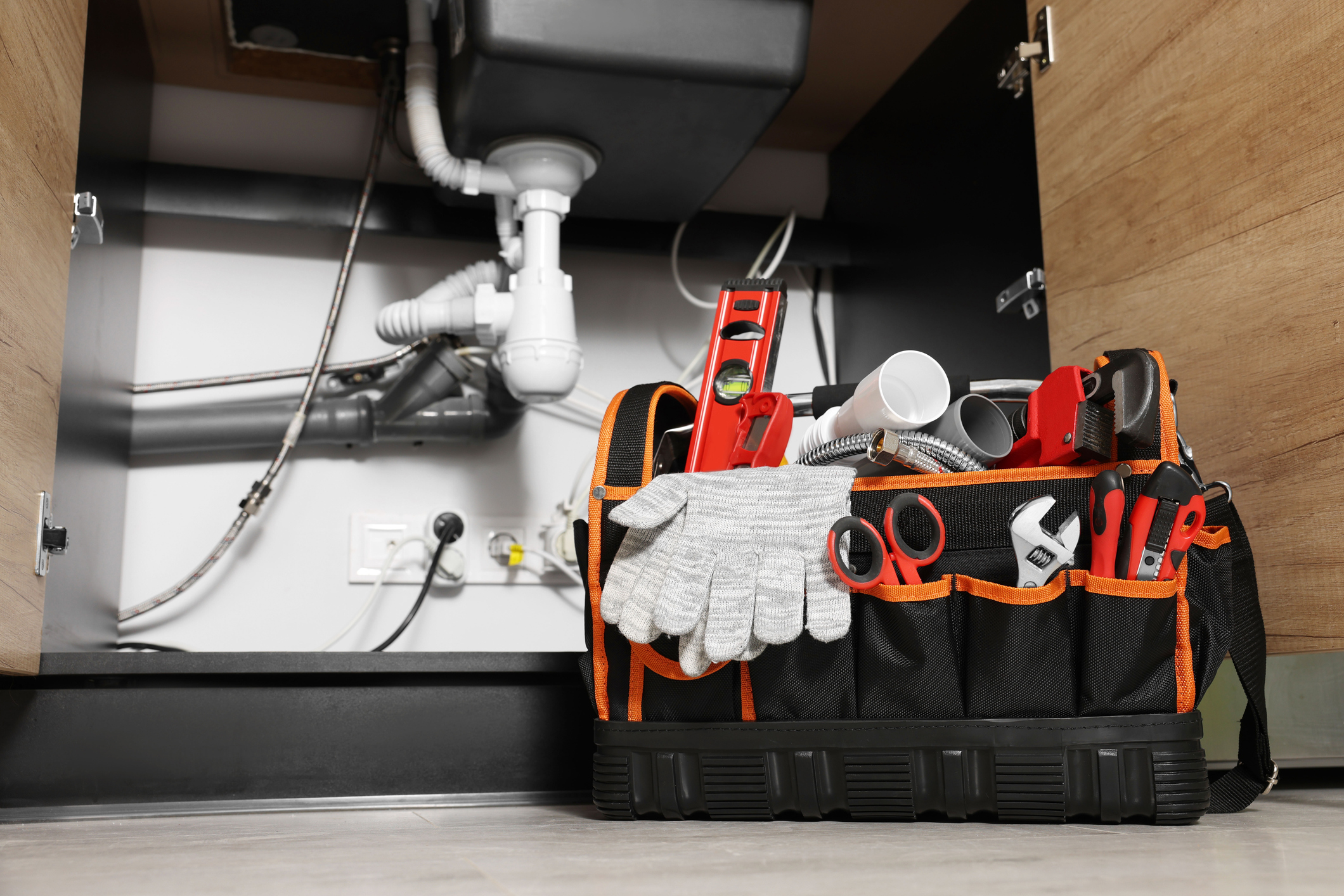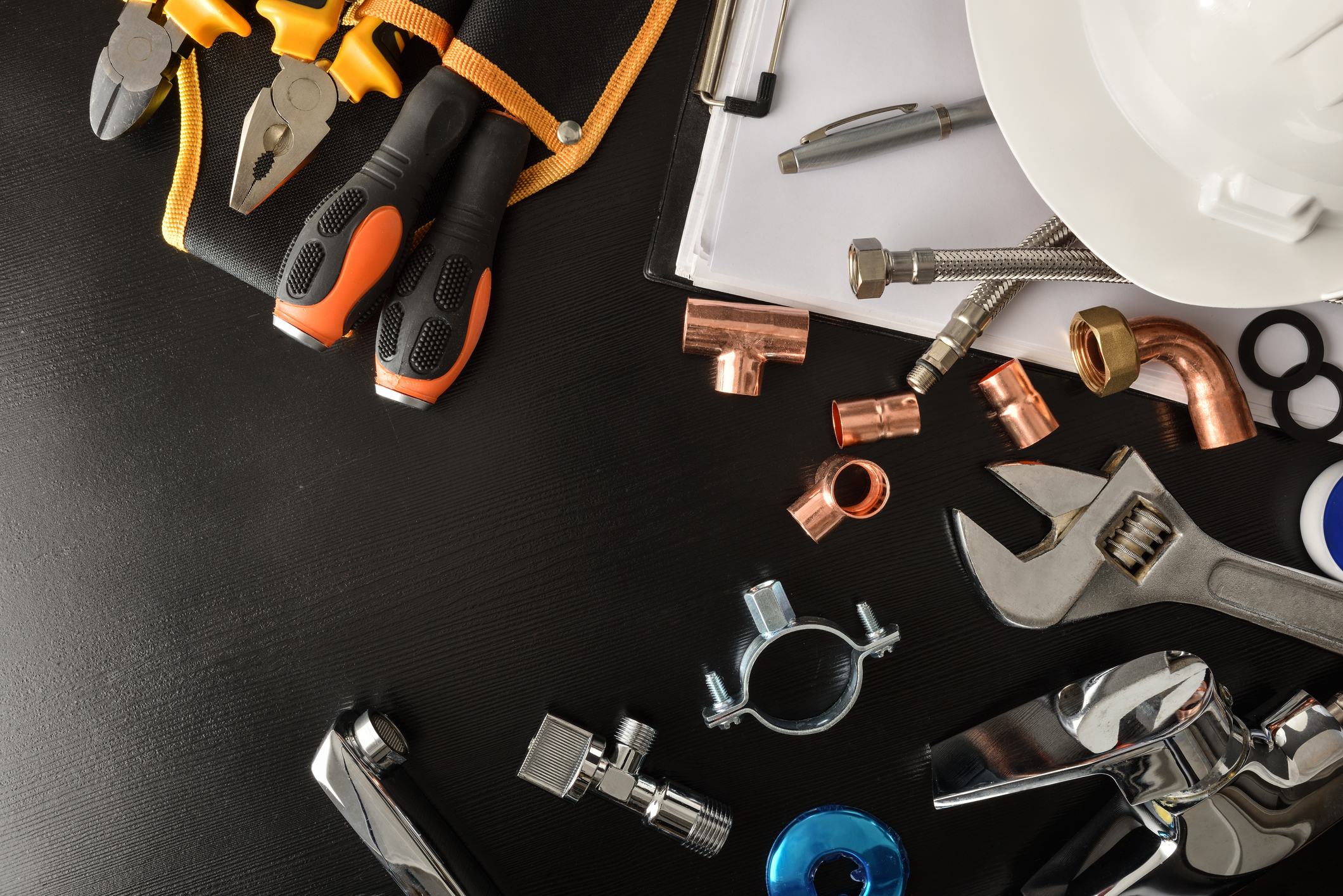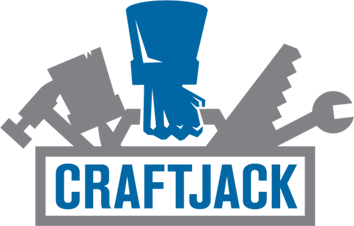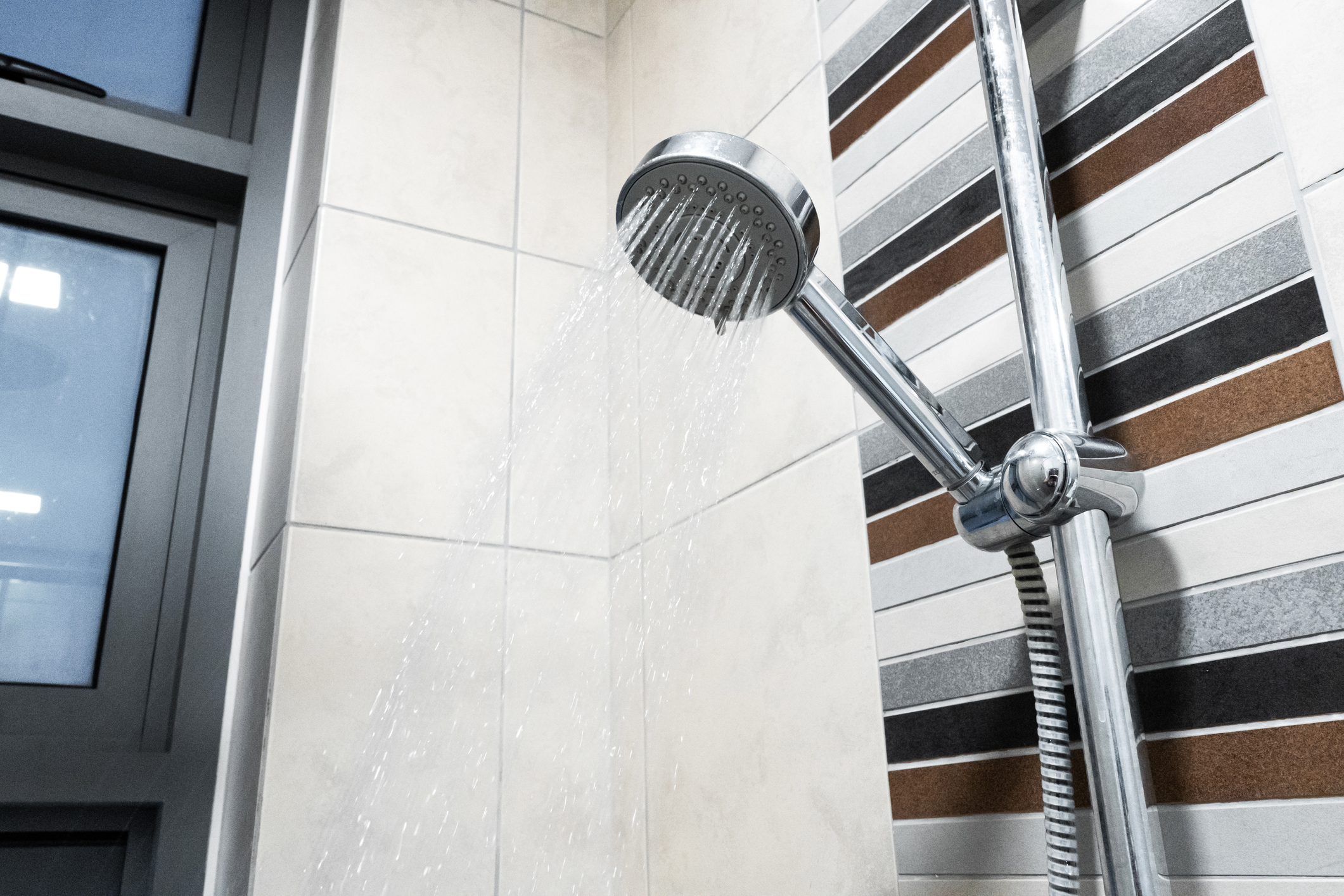How to Start a Plumbing Business | CraftJack
Learn how to start a plumbing business in just 7 steps. Discover legal requirements and financing options; learn how to get customers and read tips for success.

Are you ready to use your plumbing skills to open your own small business? Not so fast! There’s a lot to think about before you can get started. Do you know the licensing and certification requirements? Have you gotten financing? Do you understand business structures? Knowing how to start a plumbing business can give you a boost toward success. If you have a plan to follow, you’re less likely to miss a step and can start your business journey with confidence.
Do you know how CraftJack can help your business grow by connecting you to leads in your area? Contact us to find out more.
Why Start a Plumbing Business?
The plumbing industry in the United States is worth around $125 billion. This number is likely to rise as new homes are built for a growing population and older homes need upgrades. Although the Bureau of Labor Statistics says overall growth for plumbers will only be around 2% from 2021 to 2031, it does say there are plenty of openings for new plumbers. This is due to the retirement of established plumbers without enough people ready to take their place. All this means it’s a great time to start a plumbing business.
But starting your own business is hard. It’s important to understand why you want to do it. Are you looking for flexible hours so you can spend more time with family? Want a higher income? Dream of financial independence and job security? Want to be your own boss? Understanding your own personal ‘why’ can help you persevere through the hard times.
Things to Keep in Mind Before Starting a Plumbing Business
You can’t just hang a sign on your van and start raking in plumbing money. There’s a lot to think about before you start a plumbing business.
Knowledge and Experience
You can build a successful business as a handyman if you don’t have specialized training, but working as a plumber calls for more expertise. It takes a lot of training to become proficient, and you need licenses and certifications to undertake the work. You should go through training and an apprenticeship before you even think about starting your own business. If you’re still near the start of your plumbing journey, you may want to keep working for another plumber for a while to gain experience in both plumbing and other parts of the job such as customer service, developing quotes, and invoicing.
This is also the time to check the requirements for running a plumbing business. In many states, you must be a master plumber to operate a plumbing business and supervise the work of junior plumbers. If you haven’t yet become a licensed master plumber, it’s a good idea to get this certification. Even if it’s not required in your state, it will reassure your customers that you’re capable of completing their work. You may also want to consider specialty licenses if you want to do specific types of work.
Strengths and Weaknesses
Think about your own strengths and weaknesses. This can help you decide how to build your business. For example, if you have a lot of technical knowledge as a sprinkler fitter, you may want to focus on commercial customers. If you get bored doing the same thing every day, residential plumbing may be the best choice because there’s always something different to do.
Thinking about strengths and weaknesses should go beyond your plumbing skills. If you’re aware that you’re not great at certain aspects of the business, such as marketing or paperwork, you can hire help for those tasks. If you’re great at managing people, you may choose to take on other plumbers early to grow your business.
Support
It’s easier to start a business if you have support. This could be from your spouse, friends, or family. They can provide a boost when your morale is low and offer more practical help, such as picking up the kids from school, doing some filing, or making sure you take a day off. Think about the people around you who can offer this sort of help and talk to them about your plans.
How to Start Your Plumbing Business
Starting a business is never easy. It takes a lot of hard work and dedication to build a customer base and become a success. Despite this, the actions you need to take are relatively simple if you know what to do. The following seven steps can get you started.
1. Write a Business Plan
A strong business plan is the first step to starting any business, and a plumbing operation is no exception. It allows you to detail your business goals and how you intend to meet them. Traditionally, a business plan includes:
- Business name
- Executive summary
- Company description
- Company structure
- Market analysis
- Organization and management
- Services or product line
- Marketing and sales
- Funding
- Financial projections
The Small Business Administration has information and examples of business plans you can follow.
Writing a comprehensive business plan makes you think carefully about the key elements of your business. This can clarify everything you need to do to be a success. Most banks, lenders, and investors ask to see a business plan when deciding whether to loan you money or invest in your business. Having one ready to go, and being able to answer questions about it, gives you a head start when you’re ready to look for financing.
2. Do the Paperwork
Starting a business requires a lot of paperwork. In order to legally run your business, you’ll need to take care of the following formalities.
Business Name
Your business name identifies you to the world. Choose a memorable one and you’ve taken your first step toward finding customers.
Your business or entity name needs to be registered at the state level. Each state has different rules about how to register the name, but in most cases, it has to be different from any other registered names.
You may also need to register your doing business as (DBA) name. This is the name you trade under if you don’t want to trade under your business name. This isn’t a requirement in every state, especially if your entity name and DBA are the same. However, it can still be useful because having a DBA and a federal tax ID allows you to open a business bank account.
Once you’ve decided on your entity name and DBA, you should establish an online presence. Grab the website domain, also known as the website address, and any social media handles for sites where you plan to market. Finally, you may want to think about trademarking the name, which prevents other people from using it at a national level. You can check the official trademark database to see if your preferred name is available.
Business Structure
Although your business structure can have many effects, the main ones are in the taxes you pay and your personal liability. It may be possible to change the structure in the future, but it’s difficult and there may be restrictions. This is why you should think about it carefully when you’re first setting it up. Structures that may be appropriate for your company include:
- Sole proprietorship. You’re the one in charge, and your personal assets and liabilities aren’t separate from those of your business. You can be held personally liable for debts, and it can be difficult to raise money; however, this is the easiest to establish.
- Partnership. Used when two or more people own the business together. Profits are passed through to personal tax returns. A contract is essential to clarify who makes decisions and when partners are liable for business debts.
- Limited liability company (LLC). This creates a company that’s separate from you. This protects your personal assets from bankruptcy or a lawsuit. Profits aren’t subject to corporate taxes, but all members of the LLC must pay self-employment taxes.
If you don’t register any other structure, it’s assumed that you’re a sole proprietor. Check with your state for details on how to set up a partnership or LLC.
Tax ID/Employer Identification Number
You need to register for state and federal taxes. The federal number is known as the employer identification number, or EIN. If you’re a sole proprietor, you may not need an EIN; instead, your Social Security number identifies you. However, having one can make it easier to open a business bank account and prepares you for the future when you hire employees. You can apply for an EIN online through the IRS website.
If your business has to pay state taxes, you also need a state tax ID number. You'll need to do some research based on your location, as each state is different. Your state’s department of taxation generally has this information on its website, and its staff can answer your questions.
Contractor’s License
Lastly, you need a plumbing contractor’s license. There's usually a state license required, and you may need further local permissions. There are large fines if you don’t have the correct license or permit. Doing the right thing at the start will save you a lot of money and may even save your business. The contractors' web page for your state should have information about the permits you need. Don’t forget to check county and city regulations as well.
3. Get the Financial Details Organized
Keeping your personal finances and the business’s finances separate will save you a lot of headaches in the future. It makes it easier to file your taxes and track the progress of your new venture.
Opening a business bank account is the easiest way to do this. A dedicated bank account keeps the finances separate and simplifies your tax accounting. It also makes it easy to apply for a business credit card.
Another aspect of your business's finances is financing. You need capital to buy vehicles and equipment, pay for marketing, and support yourself and pay your employees while you're getting established.
If you’re lucky, you have enough money set aside to get you started, but most people must find funds from somewhere else. You may need to find an investor or speak to the bank about a small business loan. Depending on your circumstances, you may also be eligible for a small business grant or government loan scheme.
Now is also the time to insure your business. Insurance is essential to protect both yourself and your clients. At a minimum, you need business insurance, general liability, worker’s compensation insurance, and property insurance. This will protect your company from accidents and unforeseen losses. As a bonus, customers often feel more comfortable hiring someone who's fully insured.

4. Invest in the Right Tools
Next, you need all the equipment to run your business. You may already have your own plumbing tools, or you may need to purchase them. Buy the best quality you can afford so you won’t need to replace them for some time. Some of the tools you may have to buy include:
- Wrenches
- Pipe cutters
- Plumber’s torch
- Hacksaw
- Thread sealing tape
- Pliers
- Reaming tools
- Metal file
- Borescope
- Hand auger
- Drain snake machine
- Plungers
- Heat shields
- Goggles
- Gloves
- Putty knife
- Propane torch
Your exact list will depend on the types of jobs you intend to handle. Remember, you don’t have to buy everything at once; purchase the essentials first. You can always rent specialty tools or buy them as those sorts of jobs come up. Don't forget to budget for a van or truck so you can travel to each job.
Finally, consider the administrative side of your business. It’s easier to manage your finances and taxes with good quality accounting software. The right app can also handle quotes, scheduling, invoicing, appointment reminders, and inventory. Do some research and ask other plumbers you know to get recommendations for good plumbing business management apps. Remember to establish a way for customers to pay. If you’re going to offer electronic payment, you will need the hardware for payment processing.
5. Finalize Your Services
You’ve probably been thinking about the services you plan to offer, but now's the time to put it in writing. Make a list of the type of work you’ll provide, where you’re willing to work, and how much it will cost. Decide whether you’ll focus on commercial or residential work and if there’s an area you can specialize in that will make you stand out from the crowd.
The most common pricing structures for plumbing work are either an hourly cost or a flat rate for each type of job. Pricing can be difficult to get right. Set costs too low and you’re not getting what you’re worth. Higher fees may attract those looking for a boutique service, but fewer customers can afford those prices. Research what other plumbers in your area charge to get a feel for what the market can handle.
You may be inclined to operate your business in your local area. This does cut down on travel costs, but if there’s already plenty of plumbing businesses, it can be hard to establish a presence. It may be worth the extra travel to an area with few plumbers if you find plenty of customers desperate for your services.
6. Assemble Your Team
It’s absolutely possible to run your plumbing business with no employees. Many people don’t want the responsibility of hiring and managing employees. But keep in mind that it will restrict your growth. You won’t be able to say yes to all the jobs you’d like to.
If you decide to hire other plumbers, it’s time to find your new employees. This means you can hit the ground running when you start getting customers. It’s possible you already know some quality plumbers who are looking for a new job. If not, do some research about hiring and interviewing to make sure you get the best person.
It’s not just plumbers who can help make your new enterprise successful. If you’re worried about the administrative side of the business, consider hiring someone to manage it for you. A part-time office assistant can take a lot of pressure off, letting you concentrate on what you do best. These days, you don’t even need to provide an office. There are virtual assistants (VAs) who work from home and can help with a wide range of tasks.
7. Find Customers
The last step is to find customers. Sometimes, this can be easier said than done. Marketing a business is a broad topic, and what works for one business might not work for another.
If you want a coherent marketing plan, think about how you want to brand your business. This can be as simple as deciding who you want your customers to be and what they’re attracted to. For example, if you want to do jobs for commercial clients, you should pick a professional name and logo. A business providing general plumbing in a small town might be able to use some humor in its marketing with a funny name, such as the ever-popular Royal Flush Plumbing.
You can also build a marketing plan around your competitive advantage. Your competitive advantage is the thing that makes you stand out from the competition. It could be the area where you operate, guarantees that you offer, or even technology you have that isn’t used by other plumbers.
There are a variety of ways you can get your name out to the public. Online visibility is important these days, as many people use Google to find contractors. You can have someone build a website or establish a Facebook page so people can find you when they search. It also helps to join Nextdoor or a local Facebook group if they’re available in your business location. While you may not be able to advertise directly in the group, you can make contacts and mention the business when people ask for plumbing recommendations.
Your business truck is another great way to get noticed. Add signage to the truck, along with your phone number, email address, and website. People will look you up when they need a plumber. Don’t dismiss old-fashioned advertising methods either. Pinning a leaflet to a community bulletin board, putting brochures in mailboxes, or sponsoring a little league team can get you customers. Don't forget CraftJack's role in your marketing plan. Customers contact us looking for local plumbers, and we pass phone-verified leads along to you.
Once the customers come in, you should strive to keep them. Provide good customer service and quality plumbing to convert first-time customers into repeat clients. Happy customers are also likely to pass your details on to their friends and family. Word-of-mouth advertising is some of the best because people trust past customers. You may want to encourage this type of advertising with a customer referral program.
Tips for the Day-to-Day Running of Your Plumbing Business
You’re probably wondering what the day-to-day running of a plumbing business will look like. There’s no one answer to that as every day is different. Every morning brings new jobs, new customers, and new challenges. One day you might be unblocking a toilet and the next helping renovate a bathroom. With so much going on, your business can feel overwhelming. Here are some tips to keep everything running smoothly.
Get Organized
Most people opening a plumbing company understand how to get the water flowing but not how to keep the business organized. It's possible to get help with administrative details, but you also need a way to track what you must do. Whether that’s plumbing-specific software or a good diary, write down your appointments and tasks so they’re not forgotten. There’s nothing that will ruin your company’s reputation more quickly than not showing up. Your diary can also remind you of other obligations, such as filing taxes and paying employees.
Reward Employees
Your employees are your greatest asset. Every time they visit a customer, they’re representing your business. Good interaction is more likely to create a repeat customer. So, looking after your employees and ensuring they’re happy will pay off. Regularly rewarding your team with dinners, gift cards, or bonuses can encourage them to work harder and grow into the role.
Learn From Others
You can never stop learning when you’re running your own business. Keep up to date with innovations in the industry so you can offer your customers the latest and greatest, such as smart-home compatible or environmentally conscious options. Being a member of an industry association or reading trade magazines is a good way to stay in touch. Also consider listening to podcasts while you drive so time spent in traffic isn’t wasted.
Take a Break
It’s no use building a successful business only to get burnt out by how busy you are. If you’re like most people, you started your own company to have more control of your time, not less. Make sure you take a break so that you have the energy to keep growing. This means scheduling at least 12 hours off each day for sleep and relaxation. Don’t even do filing during this time. While you may feel you can’t take a full weekend off when you’re starting out, at least one day off a week is essential to keep you refreshed. If you offer 24/7 service for emergencies, hire some help, and take turns being on call.
Start Plumbing with CraftJack
Now that you know how to start a plumbing business, you have all the knowledge to make it successful. It’s a rewarding job with the potential for growth, and every day you go out, you know you’re helping people. Quality lead generation can help you make your business a success. CraftJack sends you leads from home and business owners who have projects that suit your company. The phone numbers are verified for accuracy, and you hear about new leads once they come in so you can start winning jobs right away.

